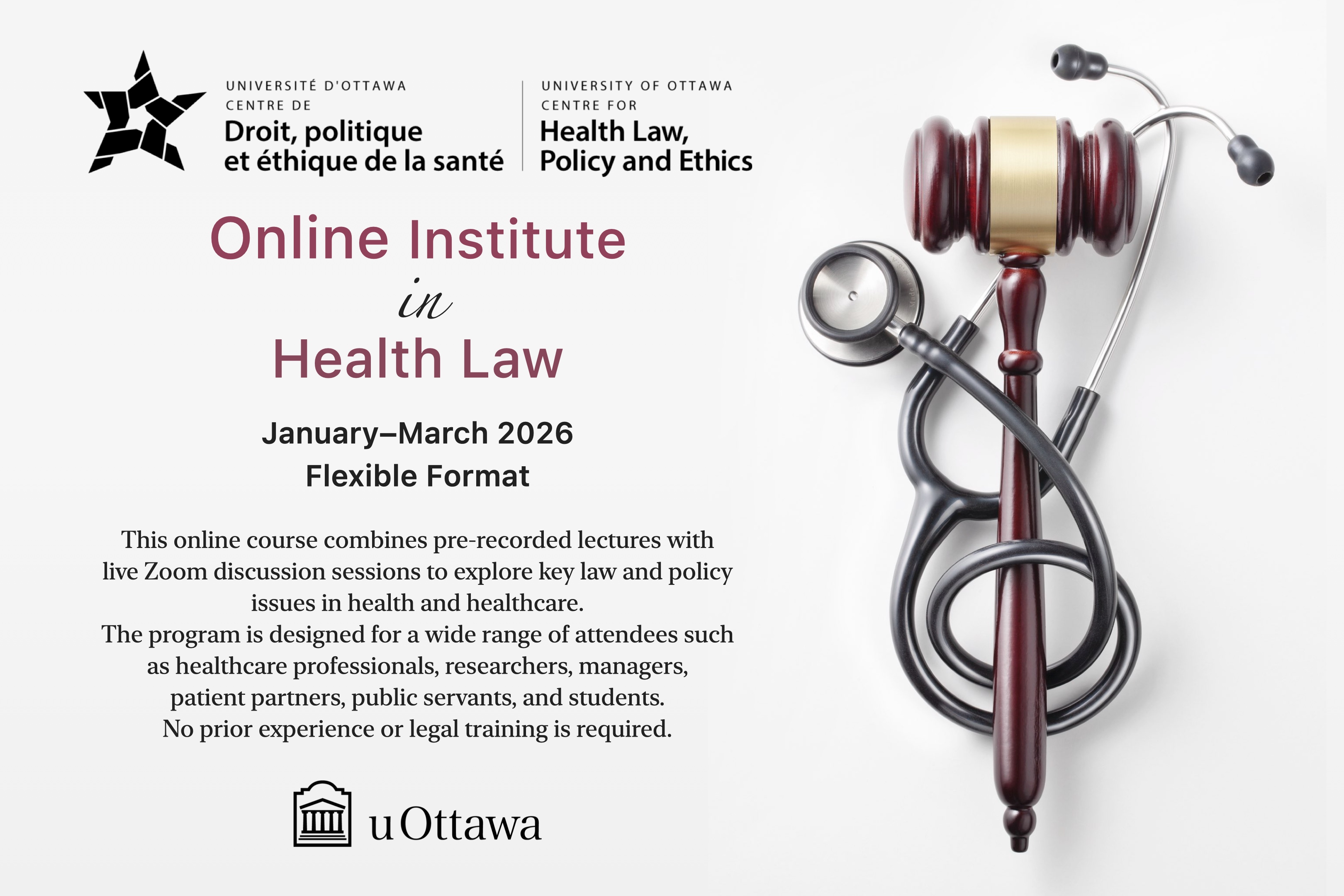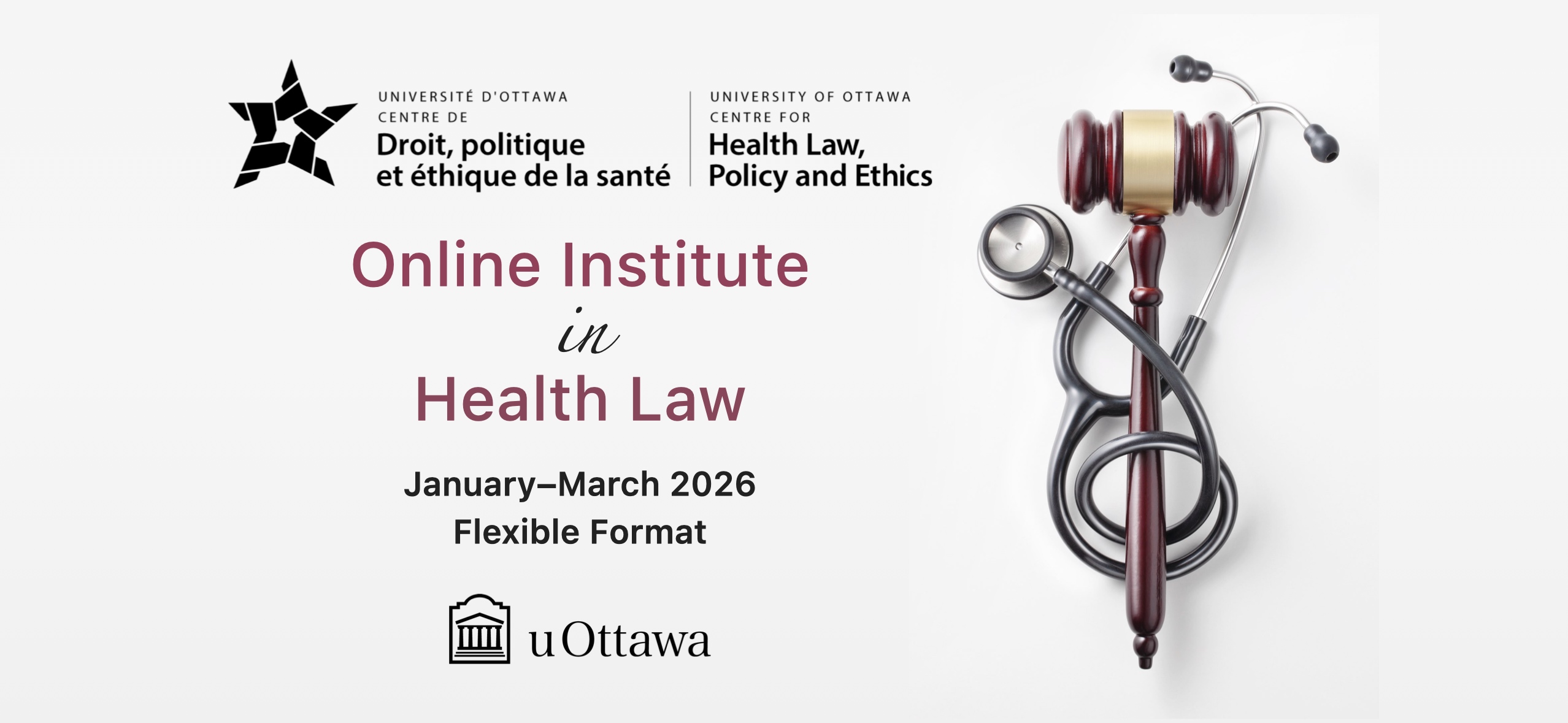


Based in accessible instruction grounded in real world examples, this one-week intensive equips you to understand and respond to key law and policy issues in the field of health and healthcare.
Participants
The program is designed for a wide range of attendees including healthcare professionals, researchers, administrators, patient partners, policy makers, public servants, graduate or professional students, and others who want to better understand the many legal issues that arise in practical healthcare contexts. No prior experience or legal training is required.
Format
The program runs from January 5–March 24. This includes one introductory week, 10 topic weeks, and one break week at March Break. Each of the ten topics is presented through a pre-recorded lecture by a different leading expert, which students watch on their own time. These lecture videos average 2 hours in length each (ranging from 1.5–3 hours). Additionally the class will meet by Zoom each Tuesday from 12–1 pm ET to discuss the previous week's topic and introduce the next topic. We require all students to attend these live sessions and to actively participate (see FAQ below for exceptions).
Cost
The cost is $1,200 (CAD) + 13% Ontario HST. This is payable upon acceptance of an offer of admission. A limited number of $300 bursaries are available to applicants who are full-time students or recent graduates and are in financial need—see under "Apply" below for more information.
Certificate
Students completing the program will receive a certificate from the University of Ottawa Centre for Health Law, Policy and Ethics.
FAQ
Do I need a law degree?
No, we assume no prior legal training.
What do I need?
All lectures will be available through streaming video which you will need a Google account to access. Most attendees will already have one. If you don't, making one takes two minutes and is free. To join the live discussion sessions you will need Zoom. No physical texts are required—any readings will be provided in digital form.
What is the language of instruction?
All videos and Zoom sessions will be in English.
What is the time commitment?
The ten lecture videos are on average 2 hours long each (ranging from 1 hr 30 mins to 2 hr 50 mins). These are supplemented by ten 1-hour Zoom discussion sessions. Some videos also have associated readings. These are optional but if you do them all you can expect to spend at most two hours per week on them.
Will there be an exam or other assessment?
No, there are no assignments, tests, exams, or other grading.
Do I need to attend the Zoom sessions?
Participation and interaction in the Zoom sessions is an important part of the program for the whole group. Moreover, attendance and participation is essential since there are no assignments or exams. That being said, it is acceptable to miss one or perhaps two of these sessions with a prior request.
If you miss a significant number of sessions, we may either offer you an alternative means of evaluation or not award the certificate.
Can I get university course credits for participating in the Institute?
No. Upon completion of the program you will receive a certificate from the University of Ottawa Centre for Health Law, Policy and Ethics. While we are an official Centre within the University, we are unable to grant University of Ottawa course credits.
What is the application deadline?
Class size is limited and we are reviewing applications on a rolling basis until the class is filled. There is no application deadline but we encourage you to apply promptly.
Can I defer payment?
Generally the fee is due upon acceptance of an offer of admission. In exceptional circumstances we can defer up to the week before the program begins—please contact us if you would like to request this. Unfortunately we cannot defer past the start of the program.
Apply
To apply, please click the button below to submit a c.v. by email.
If you are a full-time student or recent graduate and would like to apply for the $300 bursary, please include a brief explanation of your financial need in the email. Please note that not everyone who applies for a bursary is guaranteed to receive one since we have a limited number available.
Class size is limited and we are reviewing applications on a rolling basis until the class is filled. There is no application deadline but we encourage you to apply promptly. Applications are assessed based on merit and the aim of assembling a strong group of participants with diverse professional backgrounds, career stages, and experiences.
























